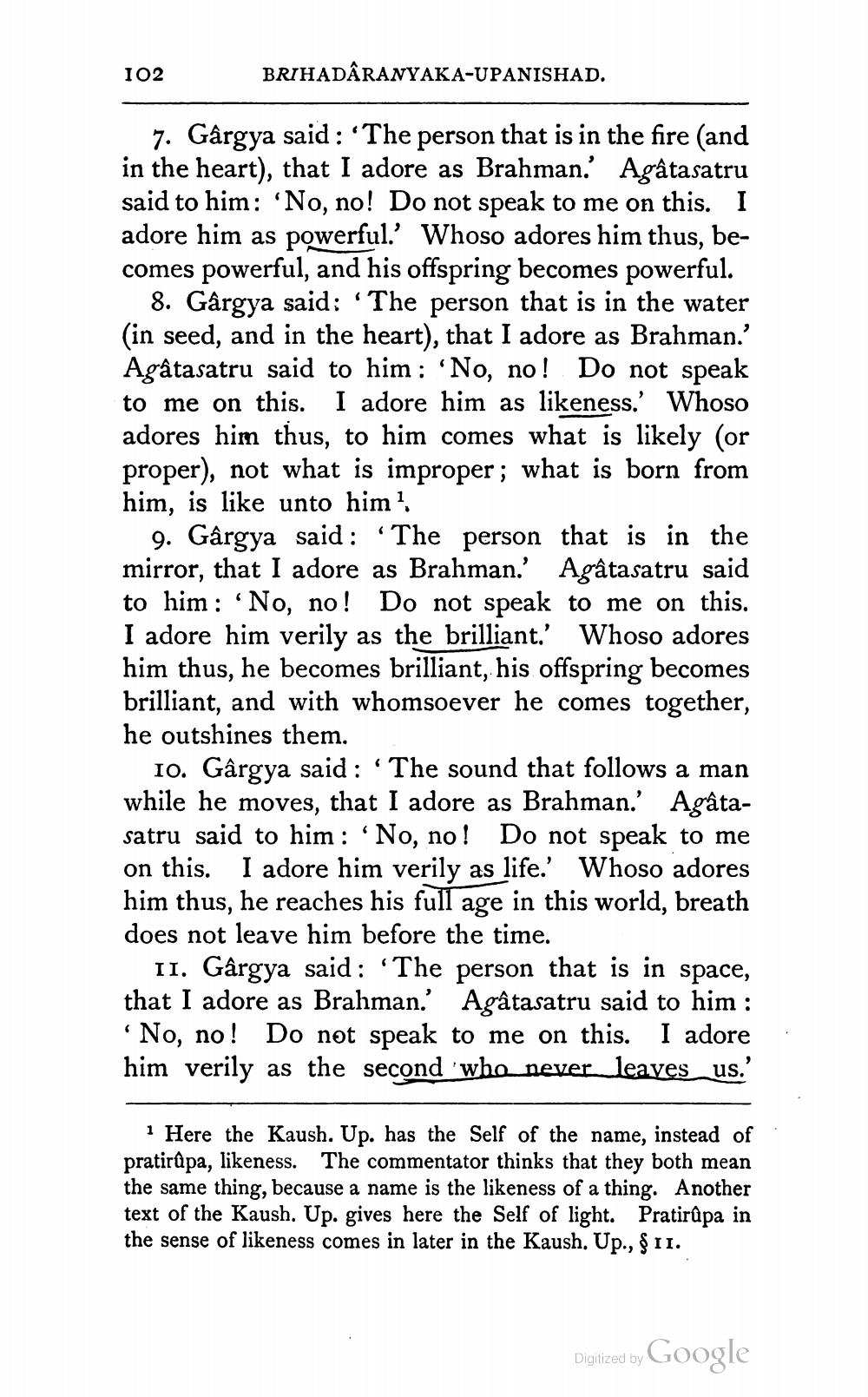________________
102
BRIHADARANYAKA-UPANISHAD.
7. Gârgya said: "The person that is in the fire (and in the heart), that I adore as Brahman.' Agâtasatru said to him: 'No, no! Do not speak to me on this. I adore him as powerful.' Whoso adores him thus, becomes powerful, and his offspring becomes powerful.
8. Gârgya said: 'The person that is in the water (in seed, and in the heart), that I adore as Brahman.' Agâtasatru said to him: 'No, no! Do not speak to me on this. I adore him as likeness.' Whoso adores him thus, to him comes what is likely (or proper), not what is improper; what is born from him, is like unto him?
9. Gârgya said: "The person that is in the mirror, that I adore as Brahman. Agâtasatru said to him : 'No, no! Do not speak to me on this. I adore him verily as the brilliant.' Whoso adores him thus, he becomes brilliant, his offspring becomes brilliant, and with whomsoever he comes together, he outshines them.
10. Gârgya said: “The sound that follows a man while he moves, that I adore as Brahman.' Agâtasatru said to him : 'No, no! Do not speak to me on this. I adore him verily as life.' Whoso adores him thus, he reaches his full age in this world, breath does not leave him before the time.
11. Gârgya said: “The person that is in space, that I adore as Brahman.' Agâtasatru said to him :
No, no! Do not speak to me on this. I adore him verily as the second 'who never leaves us.'
1 Here the Kaush. Up. has the Self of the name, instead of pratirûpa, likeness. The commentator thinks that they both mean the same thing, because a name is the likeness of a thing. Another text of the Kaush. Up. gives here the Self of light. Pratirûpa in the sense of likeness comes in later in the Kaush. Up., $11.
Digitized by Google




